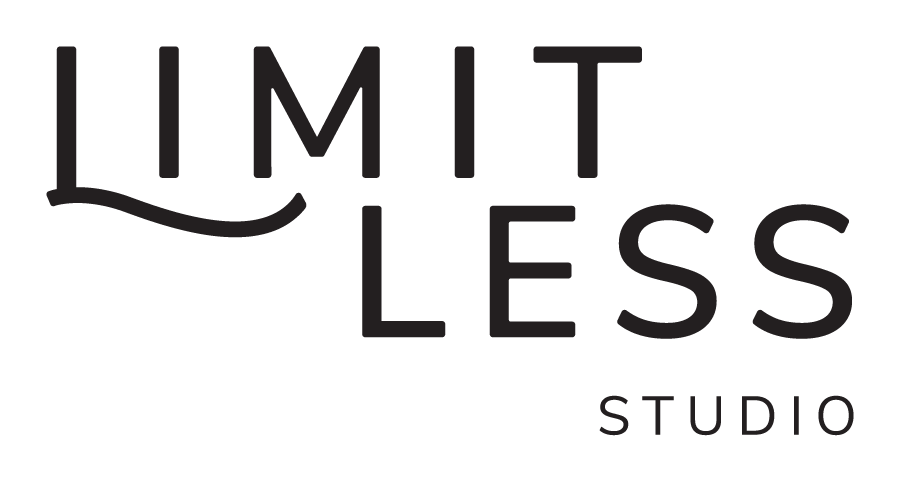The Fitness Studio Boundaries You Need to Grow A Business Without Burnout
Running a boutique fitness studio is a dream. You worked so hard to get here, and now you're...exhausted. Very few career paths involve working this closely with clients who start as strangers. You're not only helping people achieve their health and fitness goals individually while balancing their history, injuries, and background, but you're also creating a vibrant community and meshing each client into a culture at the same time. It's a lot and you don't need me to tell you that (although doesn't validation feel good?)
The demands of studio ownership can and often do lead to burnout if not appropriately managed. Setting clear boundaries with staff and clients is essential to maintaining your mental health and well-being while ensuring the long-term success of your business.
The Importance of Boundaries
According to a survey by Boutique Fitness Solutions, 67% of fitness studio owners report regularly experiencing burnout. The constant pressure to be available to clients, teachers, and the business itself can lead to mental and physical exhaustion, adrenal fatigue, and chronic stress. These compound to negatively impact your quality of life and ultimately affect the quality of service you provide, creating a negative feedback loop that keeps getting worse.
It sounds terrible when I say it like that, but it's not all bad news. The easiest way to prevent burnout and the constant noise of your business that seeps in at all hours is to shore up your boundaries. Boundaries are a common buzzword, but they're more than that. Boundaries are the guidelines, rules, or limits that a person sets to protect their personal space, emotional health, and time. They define what is acceptable behavior from others and what is not, allowing individuals to communicate their needs and maintain a healthy balance between personal and professional life. They also help create a clear distinction between different areas of life, such as work, relationships, and self-care, ensuring that one area does not overwhelm or negatively impact the others.
Key Boundaries to Implement
Take the Studio Email Off Your Phone
- Why: Constant notifications can lead to stress and distract you from personal time.
- How: Allocate specific times during the day to check and respond to emails on a computer or tablet, ensuring you have uninterrupted time to focus on your personal life and other tasks. Add an autoresponder to your email that says, "Emails will be answered within the industry-standard 48 business hours" so clients don't continue to email and know what to expect.
Don't Direct Studio Calls to Your Personal Phone
- Why: Mixing personal and business calls can blur the lines between work and personal life, making it hard to disconnect. You need to (and deserve to) check out so that you can reset your nervous system.
- How: Use a dedicated business phone line or a virtual phone system that can be managed separately from your personal phone.
Don't Give Out Your Personal Number or Email
- Why: Maintaining a professional distance is crucial to protecting your privacy and personal time. Trust me on this one. I learned the hard way.
- How: Provide a business contact number and email, and make it clear that all professional communications should go through this channel.
Avoid Accepting Client Tasks via Social Media
Why: Social media can make it tempting to blur the lines between personal and professional relationships, which can lead to unrealistic client expectations and a feeling of having to be "on" 24/7.
- How: Keep professional interactions on business accounts and encourage clients to use official communication channels for studio-related requests.
Establish Policies to Set Expectations
Boundaries are only as good as your systems and follow-through. If you don't want your staff to SOS text you 20 minutes before they're supposed to teach, make sure you set that expectation upfront. In the handbook, they should be able to read exactly what your policies are, including preferred methods of contact, response times, and appropriate hours for reaching out. For example,
"Communication procedures: Email the studio manager, CC the owner if XYZ. Only text in case of Emergency. Consider it an emergency if X and Y occur. Sub requests and all other issues should be sent via email and will be taken care of during business hours."
I have always told my staff, "Nothing is life or death. It's just barre, it's not that serious," and that works for me. When you set the tone that there are very few actual emergencies and you trust your staff to problem solve, it's less likely that you're being pinged during dinner because someone forgot their Mindbody login.
Inform your clients of your response policies as well, and guard your personal contact information like your sanity depends on it. Once it's out, it's hard to get back.
Prioritize Your Personal Time
You know that age-old cliche that you can't pour from an empty cup? Well, you can't coach wellness if you're a shell of a human, either. I know what you're saying, "I don't have time for a vacation! Who will teach my classes?" Cancel them if you have to, or clear a day on your schedule each week (i.e., no class on Sunday) so you have a day without studio stress. Other ideas to keep your sanity:
Create Personal Time Blocks
- Why: Designating specific times for personal activities ensures you have a balanced life and time for self-care.
- How: Block out time in your calendar for exercise, hobbies, family, and peace. Treat these blocks as non-negotiable appointments with yourself. Don't be your own worst bully- those blocks are sacred and are not for work.
Develop a Support Network
- Why: Having a network of peers can provide support, advice, and a sense of community, which is crucial for mental well-being.
- How: Join industry groups like the Limitless Studio Owner Facebook Group, attend conferences, and remember that other studio owners aren't competition- they're the only people who get what you're going through.
Set Realistic Goals
- Why: Setting achievable goals prevents you from being overwhelmed and keeps you focused on priorities.
- How: If you've been here for a while, you already know. Use your Studio Success Planner to break down large projects into smaller, manageable tasks. Write it all down and check it off to stay organized and emotionally regulated.
Hire and Train Competent Staff
- Why: A capable team reduces your workload and gives you a "we" instead of just an "I."
- How: Invest in hiring qualified staff and provide ongoing training. Take our Staff Workshop and delegate tasks effectively. Trust your team to handle responsibilities.
The Impact of Effective Boundaries
Implementing these boundaries can significantly improve your personal well-being and your business. According to the International Journal of Environmental Research and Public Health, business owners who establish clear work-life boundaries report higher job satisfaction and lower levels of burnout. By taking steps to protect your time and energy, you can continue to lead your studio with enthusiasm and passion for years to come.





